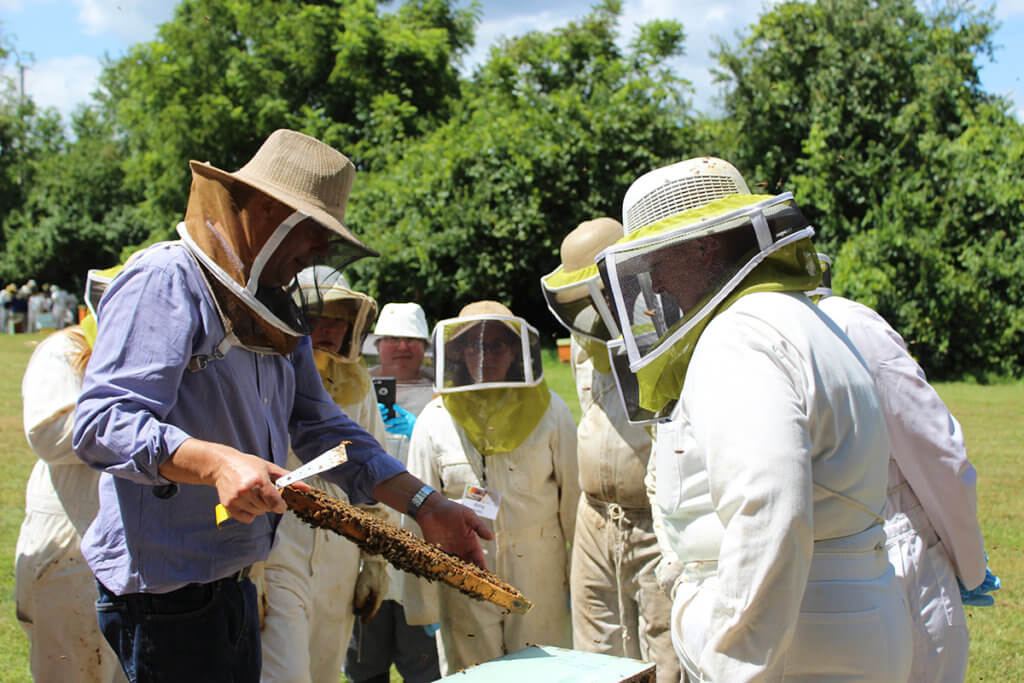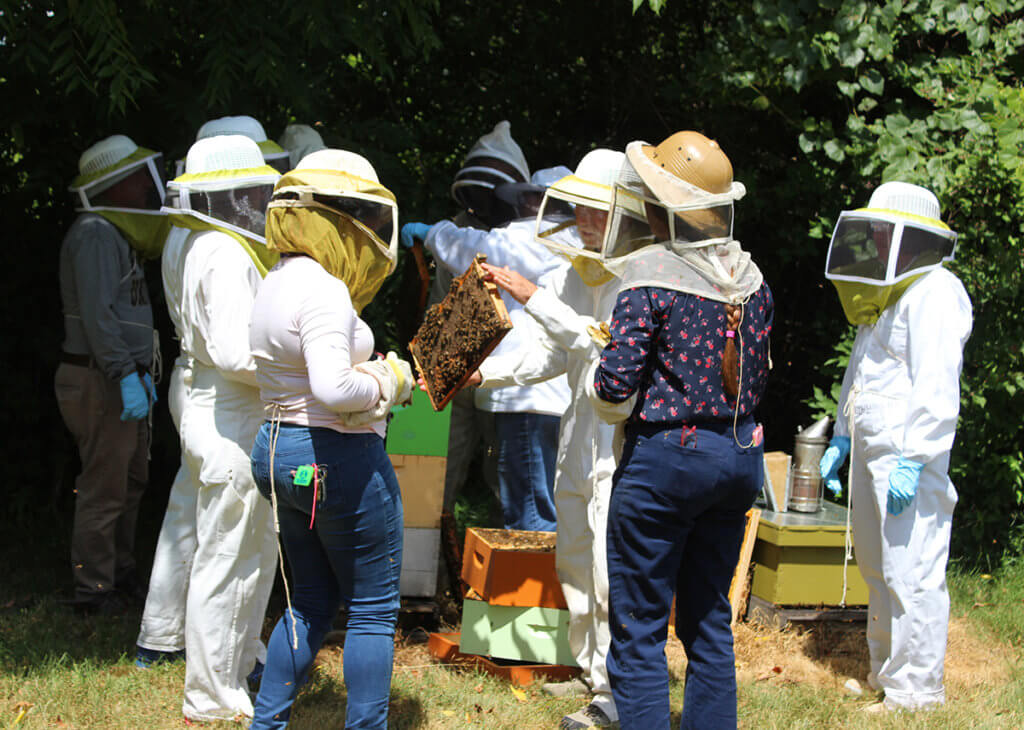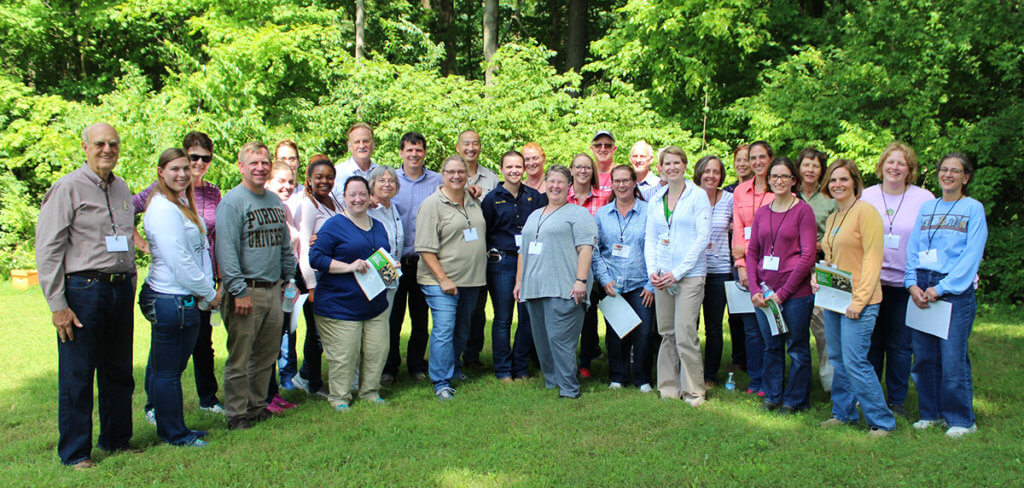
Department of Entomology Apiculture Specialist Krispn Given leads a demonstration of a hive inspection at the Purdue Apiary as part of the Beekeeping for Veterinarians Workshop July 27.
The importance of honey bees to U.S. agriculture production was reflected in the success of a workshop on bee medicine hosted jointly by Purdue Veterinary Medicine and the Purdue University College of Agriculture’s Department of Entomology July 27. The program combined lectures and hands-on learning opportunities to enlighten attendees about the veterinarian’s role in beekeeping and provide veterinarians with the skills needed to work with beekeeping clients. Nearly 30 veterinarians, veterinary technicians, and veterinary students from Indiana, Illinois, Michigan, and Ohio participated.
It is estimated that each year pollination by honey bees directly and indirectly generates $19 billion in economic impact. Recently beekeepers have faced many challenges with disease pressure, habitat loss, and colony collapse. There is also an increasing need for veterinary involvement in apiculture due to the issuance of the Veterinary Feed Directive (VFD) final rule. Because honey bees are now classified as food producing animals, veterinarians are needed to assist beekeepers with hive management, as well as disease identification, prevention, and treatment.

Hands-on learning opportunities at the Purdue Apiary, coupled with informative lectures in Lynn Hall, left attendees abuzz with enthusiasm about the bee medicine workshop.
The Beekeeping for Veterinarians Workshop provided a day’s worth of continuing education to help address that need. Speakers included Krispn Given, apiculture specialist in the Department of Entomology; Dr. Terry Ryan Kane, owner of A2 Bee Vet practice; and Kathleen Prough, the Indiana Department of Natural Resources (IDNR) chief apiary inspector.
Workshop participants learned from experts on basic beekeeping; honey bee biology; honey bee diseases, treatment, and prevention; as well as regulatory requirements and inspection protocols. The sessions were designed to provide practical knowledge and skills related to bee medicine, as well as insights on how veterinary professionals might interact with and provide assistance to beekeepers. Following the lectures, workshop attendees visited the Purdue Apiary, where they received hands-on training on beehive management. It was a chance to put their newly learned skills to the test as they grew comfortable with the bees and participated in a hive inspection demonstration.

Nearly 30 veterinarians, veterinary technicians, and veterinary students from Indiana and neighboring states participated in the workshop on bee medicine, co-hosted by Purdue Veterinary Medicine and the Purdue University College of Agriculture’s Department of Entomology.
